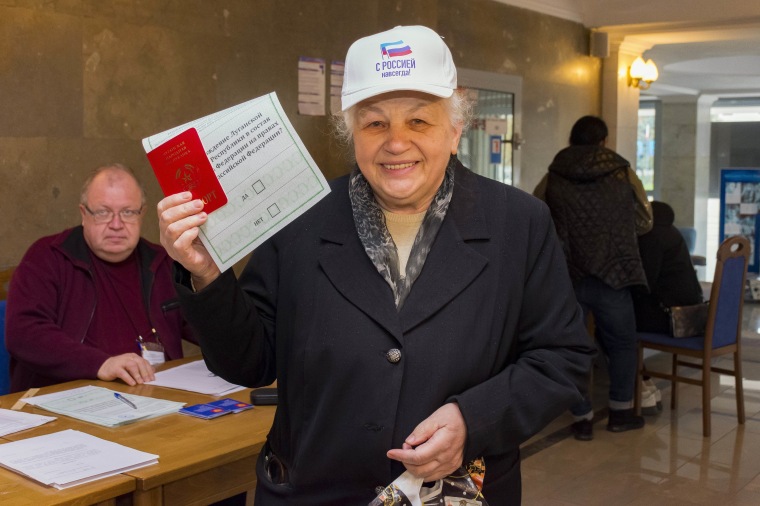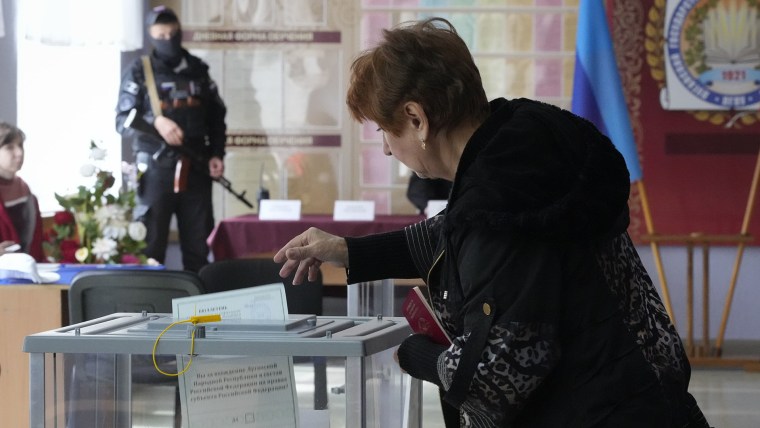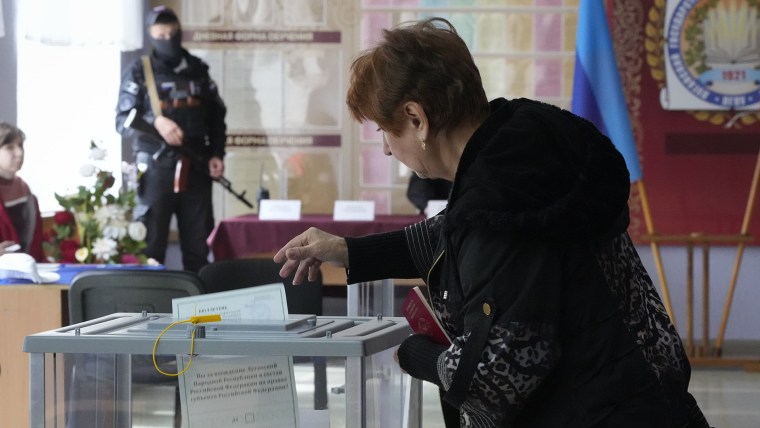New satellite images released Monday appeared to show a large number of vehicles lining up at Russia’s border crossings with neighboring Georgia and Mongolia.
Maxar Technologies, a U.S. defense contractor, said its imagery collected Sunday showed a large traffic jam at the Upper Lars border crossing between Russia and Georgia that likely extended beyond the 10 miles that the satellite could capture in a single image.
On Tuesday, the Russian state news agency Tass quoted Russian border officials as saying that around 3,600 passenger cars were waiting to cross into Georgia.
Russian media has also reported a rush of its citizens trying to enter Finland and Kazakhstan.
Kazakh President Kassym-Jomart Tokayev said Tuesday there was “no crisis or panic” in the country over the influx of Russians, Interfax news agency reported, but called the situation “difficult” and promised to discuss it with the Russian side. Kazak border authorities said 98,000 Russian citizens have entered Kazakhstan since the mobilization was announced, according to Russia’s state news agency Ria.
NBC News reached out to border officials in both Kazakhstan and Finland for further comment.
Finish border officials said in a tweet Tuesday that the traffic on its land border with Russia was still busy, but reduced from the peak of the weekend.
The exodus comes amid growing violence at recruitment centers.
A recruiter was shot at a draft office in Siberia Monday while a draft center was set on fire in the city of Uryupinsk in southern Russia. Arson at Russian military enlistment offices has been reported since the war started.
On Monday, Russian media reported cases of some men being turned back at Russian airports and barred from leaving the country.
Russian state media agency Ria said one of its journalists, Ilia Vasilyev, was not allowed to board a flight out of Russia at Moscow region’s Zhukovsky airport. Ria shared a photo of the notice that the border guards handed to Vasilyev, denying him the right to leave based on what the border officials said was a decision by the military registration office.
That came as Russia’s defense ministry tried to assuage the growing panic, saying in a statement Monday that there were “no restrictions on the movement of citizens” during the partial mobilization. The ministry also said it had not asked other countries to forcibly return those who have fled the call-up.
The Kremlin spokesperson Dmitry Peskov said Monday no decisions had been made on whether to seal the borders and introduce martial law, Tass reported.
The rising public anger has even prompted criticism from the Kremlin’s top lawmakers and propagandists, who accused recruitment officials of “excesses” and fueling mass panic by drafting those who don’t qualify.

Tuesday was also the last day of voting in the hastily called referendums to join Russia in the eastern and southern Ukrainian provinces of Luhansk, Donetsk, Zaporizhzhia and Kherson.
The votes are seen as sham by Kyiv and its Western allies amid fears that Moscow will manipulate the results and move to annex Ukraine’s territory. President Volodymyr Zelenskyy said Monday the world’s reaction to the “pseudo referendums” will be harsh.
Putin warned last week that he could use nuclear weapons if Russia’s territorial integrity is threatened. Many observers see his annexation efforts as an opportunity for nuclear blackmail.
One of the Kremlin’s most hawkish figures, former President Dmitry Medvedev, reiterated that threat Tuesday, saying that Putin’s nuclear threats were not “bluff.”





